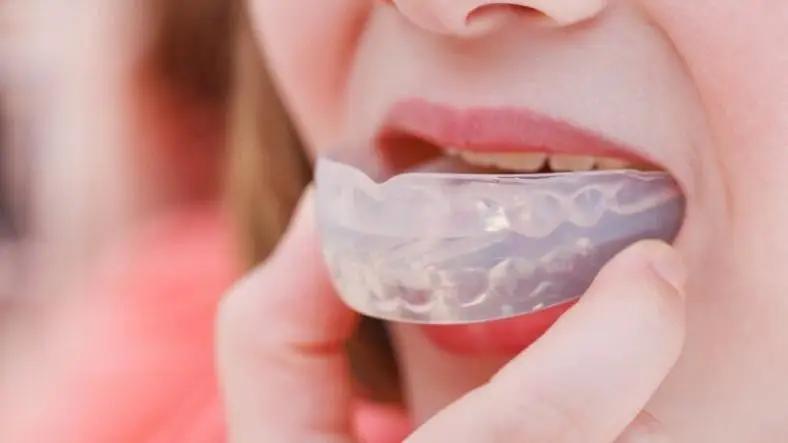Oral health and speech development are intricately linked, as the condition of the mouth and teeth significantly influences the ability to speak clearly and effectively. From infancy through adulthood, maintaining good oral health is crucial for optimal speech development and communication skills.
Here’s an article of how oral health impacts speech development and strategies to support both.
1. Understanding the Link Between Oral Health and Speech
Oral health affects speech development in several key ways:
- Tooth Alignment:
- Proper alignment of teeth is essential for clear articulation of sounds.
- Misaligned teeth or malocclusion (bite issues) can hinder the ability to produce certain speech sounds, affecting pronunciation and clarity.
- Dental Health:
- Healthy teeth and gums support proper speech function.
- Issues like cavities, gum disease, or missing teeth can interfere with speech by affecting the ability to form words and sounds correctly.
- Oral Cavity Structure:
- The structure of the oral cavity, including the teeth, tongue and palate, plays a critical role in speech production.
- Any abnormalities or conditions affecting these structures can impact speech development.
2. Impact of Oral Health on Early Speech Development
In infants and young children, oral health plays a foundational role in speech development:
- Teething:
- The teething process, which involves the eruption of primary teeth, is a crucial time for developing early speech skills.
- Discomfort or issues with teething can temporarily affect a baby’s ability to babble and make sounds.
- Early Tooth Decay:
- Early childhood cavities, often caused by prolonged exposure to sugary liquids or poor oral hygiene, can lead to pain and infection.
- This discomfort may affect a child’s ability to engage in normal babbling and early speech activities.
- Feeding Challenges: Oral health issues such as lip or tongue ties can impact feeding, which in turn affects the development of oral motor skills necessary for speech.
Google Ad 1
3. Importance of Orthodontic Care in Speech Development
Orthodontic issues, such as crooked teeth or bite problems, can impact speech:
- Articulation:
- Teeth misalignment can obstruct the airflow necessary for producing certain sounds.
- For example, a crossbite or overbite may affect how clearly a child can articulate sounds like “s,” “t,” and “d.”
- Space Maintainers: In cases where a child loses primary teeth prematurely, space maintainers may be used to preserve the space for permanent teeth, supporting proper alignment and aiding in clear speech development.
4. Addressing Speech and Language Disorders Linked to Oral Health
Certain oral health conditions can be associated with speech and language disorders:
- Cleft Palate:
- A cleft palate is a congenital condition that affects the roof of the mouth and can significantly impact speech development.
- Repairing the cleft and providing speech therapy are crucial for addressing these challenges.
- Speech Impairments: Conditions like dysarthria (muscle weakness affecting speech) or apraxia of speech (difficulty coordinating mouth movements) may be exacerbated by oral health issues, making comprehensive care and therapy essential.
5. Role of Dental Professionals in Supporting Speech Development
Dental professionals play a key role in supporting speech development through:
- Regular Check-Ups:
- Routine dental visits help monitor oral health and identify issues that may affect speech.
- Early intervention can prevent problems from impacting speech development.
- Collaborative Care:
- Dentists, orthodontists and speech-language pathologists often work together to address oral health and speech concerns.
- Collaboration ensures a comprehensive approach to treatment and support.
- Education and Guidance: Dental professionals can provide guidance on proper oral hygiene practices, which contribute to overall oral health and support clear speech development.
Google Ad 2
6. Encouraging Good Oral Hygiene Practices
Maintaining good oral hygiene is essential for both oral health and speech development:
- Brushing and Flossing: Regular brushing and flossing help prevent tooth decay and gum disease, supporting clear speech and healthy oral structures.
- Healthy Diet:
- A balanced diet that supports oral health can contribute to better speech development.
- Foods rich in vitamins and minerals support healthy teeth and gums.
7. Early Intervention and Preventive Care
Early intervention is crucial for addressing oral health issues that may impact speech development:
- Screening and Assessment:
- Regular screening for dental and speech issues can help identify potential problems early.
- Prompt treatment can prevent more serious issues from developing.
- Preventive Measures: Preventive care, such as fluoride treatments and dental sealants, helps protect teeth from decay and maintains optimal oral health, supporting clear speech.
8. Supporting Children with Special Needs
Children with special needs may require additional support to address both oral health and speech development:
- Customized Care: Tailoring dental care to accommodate specific needs can help manage oral health issues that may affect speech.
- Multidisciplinary Approach: Working with a team of healthcare professionals, including speech therapists and special education experts, ensures a comprehensive approach to supporting speech development.
Google Ad 3
9. The Impact of Adult Oral Health on Speech
Oral health continues to impact speech throughout adulthood:
- Dentures and Implants:
- For individuals who have lost teeth, dentures or dental implants can restore oral function and improve speech.
- Proper fitting and adjustment are essential for clear articulation.
- Ongoing Care: Maintaining good oral hygiene and regular dental check-ups supports continued oral health and clear speech.
Conclusion
The connection between oral health and speech development is profound and multifaceted. Maintaining good oral health through regular dental care, preventive measures and early intervention supports clear speech and effective communication. By addressing oral health issues that impact speech, dental professionals, parents and caregivers can contribute to successful speech development and overall well-being. Emphasizing the importance of oral health in speech development helps ensure that individuals of all ages can communicate effectively and confidently.
Thanks for reading the dentofacts article, for more such articles read our PeoplesBLOG.















